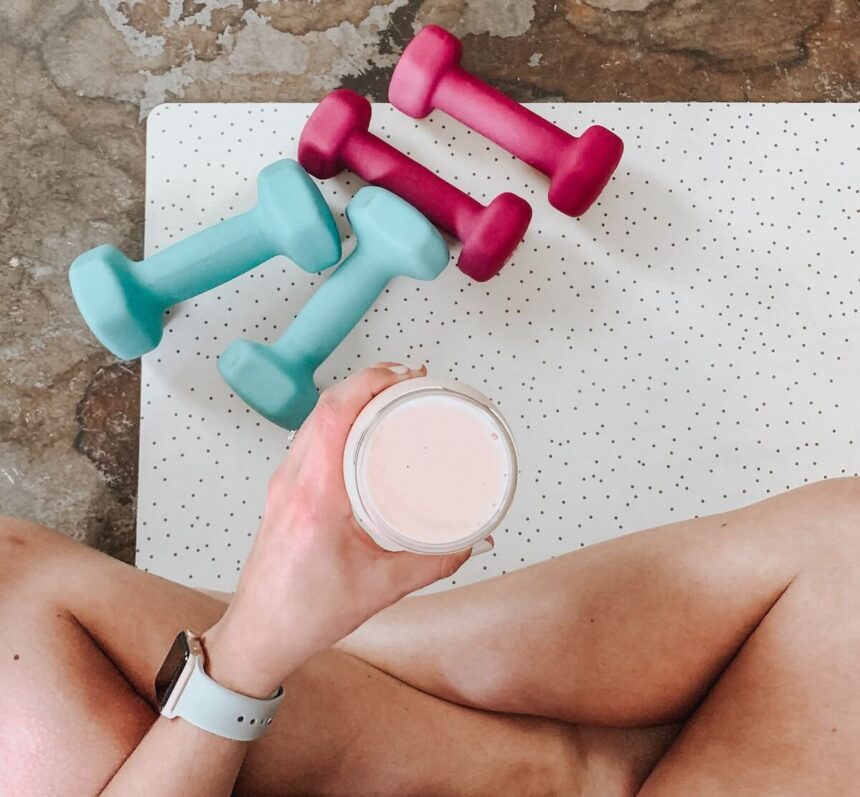The whole point of putting yourself on any diet is to see positive results. But what happens when you’re on a good diet but you’re gaining weight? It’s frustrating and counterproductive.
So, what should you do to fix it? When you find yourself gaining weight even on a diet and keep wondering, ‘why am I not losing weight?’, then the following nine questions may help you figure it out.
Is Your Diet Really That Great?
There are so many diets out there, but that doesn’t mean they’re all made equally. Unfortunately, you may have chosen a diet that doesn’t live up to its promises. This checklist will help you determine whether your diet is a smart move or not.
- Is it scientifically proven? “Experts” may promote a diet, but what does the science say about it? Marketing can convince you that a diet will work even if the research says otherwise.
- Does it require a supplement? If so, you might want to look elsewhere because this diet might just be a money-making scheme.
- Does it offer fast results with little effort? This will not last in the long run.
- Does it make sense? Let your common sense help you here. If it seems too good to be true, the chances are, it probably is.
- Does it ask you to cut out an entire nutrient group, such as carbohydrates, fats, or proteins? Each of these nutrient groups provides your body with essential nourishment. Cutting any of them out entirely is not always recommended by healthcare professionals. Often, these restrictive diets push you into binge-eating episodes or overeating, and that may be the exact reason why you can’t lose weight.
Have You Seen a Doctor?
Despite your best dieting efforts, you might be gaining weight. If that’s the case, it might be a good idea to visit your doctor to rule out any factors.
For example, mental illness, such as depression, can interfere with a healthy body weight, as can incorrect medications. If you are vitamin or mineral deficient, that could also be interfering with your body’s metabolic processes. Birth control or thyroid problems can also be a factor.
You may have age-related weight issues. That’s because the older we become, the slower our metabolism is, and that may mean gaining weight, even while on a diet.
For women who have gone through menopause, weight gain is a potential concern. This is due to the hormonal changes that occur in a woman’s body during and after menopause.
If you’re struggling to lose weight, seeing a doctor may help to determine if these factors are behind it.
Genetic Reasons?
According to Howard Eisenson, executive director of Duke Diet and Fitness Center, your “genetics accounts for 50 to 70 percent of our weight variability.” Therefore, if you’re predisposed to weight gain, it may be easier for you to gain weight, but that doesn’t mean unwanted weight gain is inevitable and out of your control.
It just means you have to be more proactive, especially since your body gets comfortable at a certain weight -even an unhealthy one. In fact, your body gets very good at resisting your dieting efforts.
This “normal” state of being is called homeostasis, and even if you want your body to change, your body might resist this.
Are You Getting Enough Sleep?
A lack of sleep can interfere with our body’s hormone production, and when hormones are out of balance, our body doesn’t perform its functions efficiently. One of the many problems you can face if you don’t get enough sleep is a troubled metabolism.
Studies show that if you’re sleep-deprived, you will:
- Snack more
- Eat more calories
- Overeat at night
Why do we do this? Because when sleep goes down, the hunger hormone, ghrelin goes up, leading us to eat too much and gain weight.
Are You Really Following Your Diet?
All diets have their rules. Some diets cut out an entire nutrient group (carbohydrates, proteins, and fats). Some have restrictions within each of the three main nutrient groups. And sometimes, if you’re not following the diet’s rules, you can get the opposite results.
For example, if you’re following a high-fat diet, such as the Ketogenic Diet or something like Atkin’s Diet, you will consume high amounts of fat and protein and very little carbohydrates. But if you introduce sugary foods into this high-fat program, you will most likely gain weight.
Most diets put you in a calorie deficit. However, if you’re wondering, ‘why am I not losing weight in a calorie deficit?’ and your diet plan in itself is balanced, you may also want to take a closer look at your overall eating habits.
Perhaps you’re adding a few bites here and there, or have increased portions over the diet plan’s norm? Even small bites add up and may be the key to why you can’t seem to lose weight.
Are You Stressed?
When we feel stress, especially chronic stress, the stress hormone called cortisol rises in the body. This can interfere with other hormone production and set our body off kilter. One of the ways that stress can impact your health is that it can make it more difficult to lose weight. In fact, stress can lead to unwanted weight gain.
The worst part about stress-related weight gain is that we tend to get more fat around the internal organs, as well as an increased heart rate and blood pressure.
Now, if you’re thinking, ‘I’m not living a stressful life, but why can’t I lose weight?’, you may also look at your morning habits and routines. It’s advised to avoid drinking coffee on an empty stomach and within the first 90 minutes after waking up due to the same cortisol issue.
Keep your coffee for a bit later in the morning, and never have caffeine on an empty stomach to optimize your cortisol levels.
Are You Exercising?
A diet is great, but it’s only going to be effective if you combine it with other healthy lifestyle decisions. Exercise is one of them. You see, a diet typically helps you improve your food choices and restrict calories. But no matter what your weight loss goals are, it’s important to move your body.
Exercising helps you burn off unwanted pounds. But it also helps to speed up your body’s metabolism, which can help you burn the calories you are eating.
Sometimes, all it takes for consistent weight loss is to add a few thousand additional steps to your daily routine.
Overeating on Health Foods
Diets are usually full of healthy foods. And sometimes we think we can load up on these “health foods”. After all, they must be better than the junk foods we’re giving up. However, too much of a good thing is a bad thing.
Even on a diet, it’s important to maintain a balanced diet. Eat smoothies, nuts, whole grains, and healthy fats in moderation. Smoothies are usually pretty high in sugar, and even though they’re full of good ingredients, they can provide too much sugar for one meal.
Similarly, whole grains are a good source of carbohydrates and fiber, but too many carbs can lead to unwanted weight gain.
So, if you’re on a good diet and working out but not losing weight, ask yourself if any of these nine factors are to blame. With a little awareness, you can get back on track and obtain the body you want.








